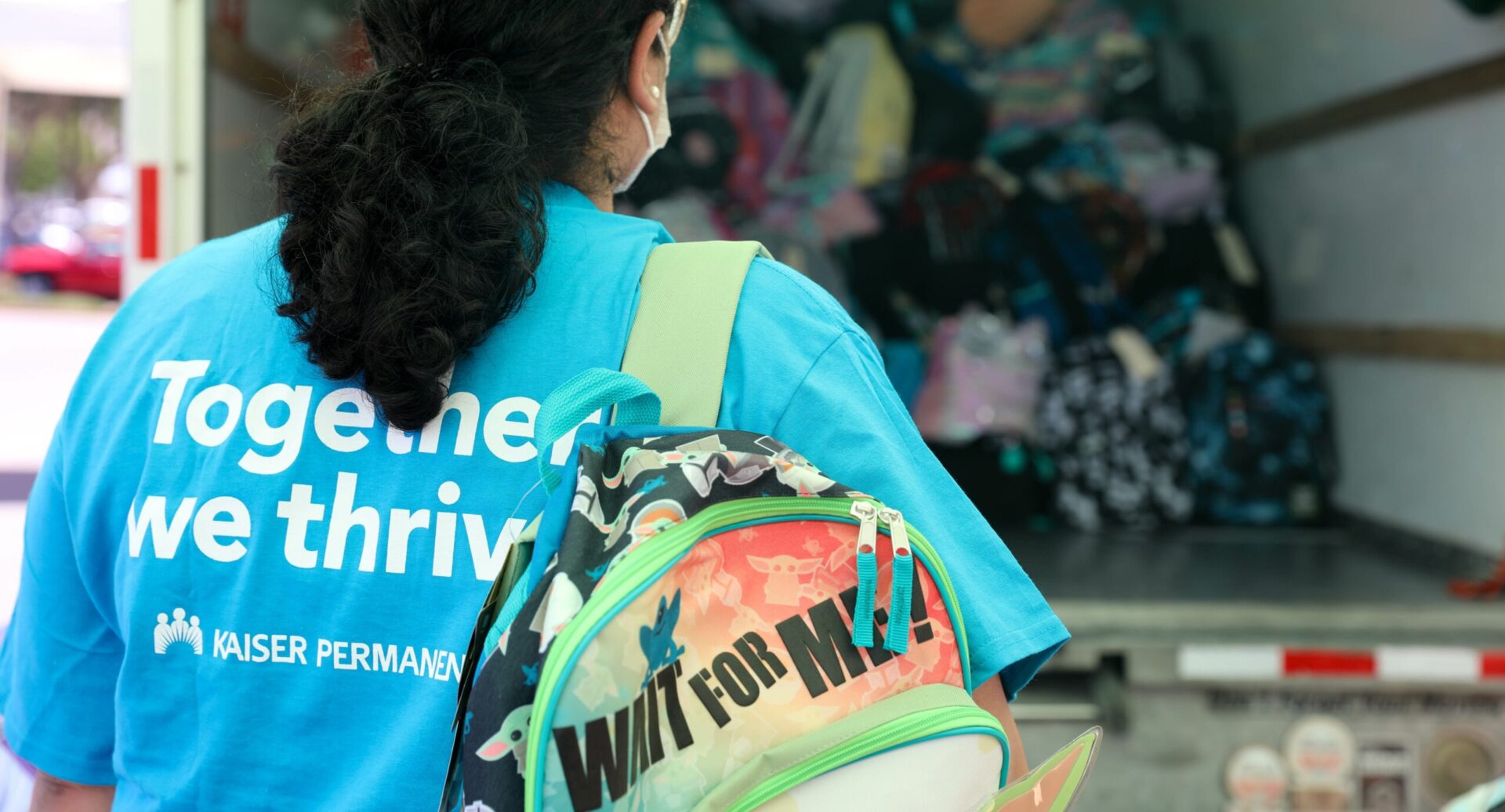Kaiser Permanente Partners with Think Together For Student Well-Being
Kaiser Permanente has provided Think Together with $129,500 in grant funding to train staff in trauma-informed care strategies at programs across the Bay Area, San Gabriel Valley, Santa Fe Springs, and the Inland Empire.
Through the grants, more than 10,000 students at 133 schools will benefit from trained staff equipped to support them in their emotional and cognitive development. By creating a trauma-informed care environment, Think Together helps students and teachers overcome the stigma associated with mental health issues. This new-found awareness will improve student academic performance and prepare them for higher education.
Trauma-informed care in a school setting addresses the needs of students who may be at risk for experiencing traumatic stress symptoms and shifts the focus from “what’s wrong with you” to “what happened to you.” Training in trauma-informed care enables staff to see a more complete picture of a student’s life situation, which leads to more effective, targeted solutions.
Studies of U.S youths aged 6-17 reveal that one in six experience a mental health disorder each year, and half of all mental health conditions begin at age 14. The most common of these are ADHD, depression, anxiety, and behavior problems. Many conditions go undiagnosed, and only half of those experiencing them are seeking or receiving treatment.
This trauma-informed care training has already had positive effects on students across each region. Staff and students alike have learned the value of mindful moments and meditation activities, and staff members report that students are applying skills they learned in class to their daily lives, from identifying the signs that they may be struggling to the use of breathing exercises to re-center themselves.
Daniel Hernandez, a Bay Area staff member, shared,
“After the classes, my team and I became more intentional with our daily check-ins. Before we would ask students how they were doing every morning and left it at that. Since the classes, we ask why they are feeling happy, sad, or excited. They have opened up more since then and they have become more comfortable sharing over the last few weeks.”
The program is especially helpful for students who are more energetic and those with special needs. The inclusion integrated into each program allows it to be universal and helpful to all. These students were encouraged to ask for breaks from activities or the classroom when the environment would be too much to handle.
Another Bay Area staff member, Brook, said, “We were able to get our students to be more in tune with learning how to communicate their feelings. They now feel more comfortable approaching staff with questions or concerns. They also are learning how to better adjust to the learning curve that was brought with COVID.”
The program has been hit with the students as well. “I love the fidget toys! I sometimes don’t even realize I’m playing with it while doing my work and it helps me concentrate,” said JL, a student from the Bay Area program.
At the conclusion of the training, reports reveal that site leaders and staff being allowed to establish closer and deeper relationships with their students made it easier to connect with them.
Thank you to Kaiser Permanente Fontana, Kaiser Permanente Baldwin Park, Kaiser Permanente Riverside, Kaiser Permanente San Jose and Kaiser Permanente Alameda for helping us fund these vital programs!
To learn more about Trauma-Informed care and mental health in schools visit:
https://www.traumainformedcare.chcs.org/what-is-trauma-informed-care/
https://www.nami.org/Advocacy/Policy-Priorities/Improving-Health/Mental-Health-in-Schools



